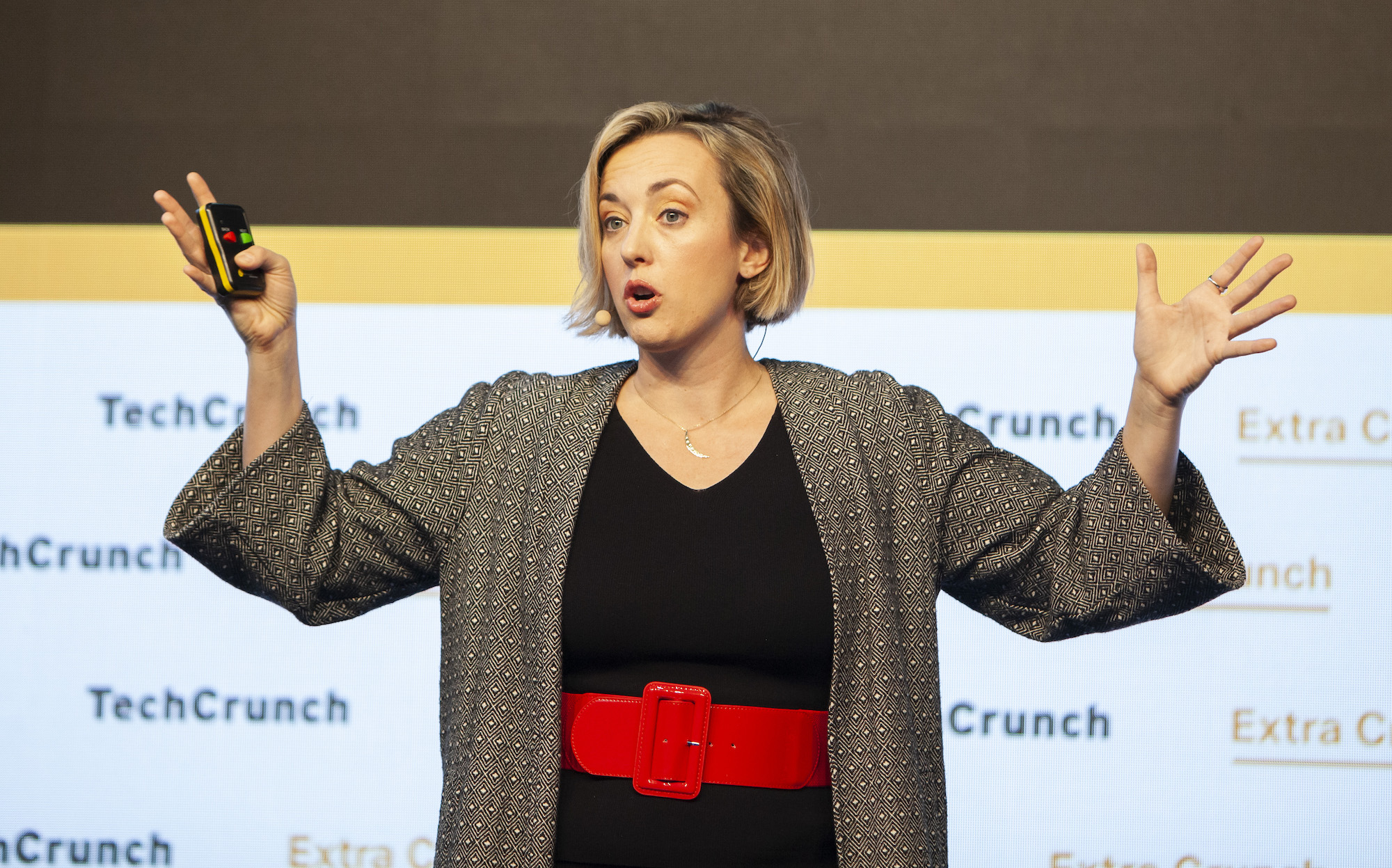Antitrust jitters, SPAC odyssey, white-hot IPOs, more – TechCrunch
Some time ago, I gave up on the idea of finding a thread that connects each story in the weekly Extra Crunch roundup; there are no unified theories of technology news.
The stories that left the deepest impression were related to two news pegs that dominated the week — Visa and Plaid calling off their $5.3 billion acquisition agreement, and sizzling-hot IPOs for Affirm and Poshmark.
Watching Plaid and Visa sing “Let’s Call The Whole Thing Off” in harmony after the U.S. Department of Justice filed a lawsuit to block their deal wasn’t shocking. But I was surprised to find myself editing an interview Alex Wilhelm conducted with Plaid CEO Zach Perret the next day in which the executive said growing the company on its own is “once again” the correct strategy.
Full Extra Crunch articles are only available to members
Use discount code ECFriday to save 20% off a one- or two-year subscription
In an analysis for Extra Crunch, Managing Editor Danny Crichton suggested that federal regulators’ new interest in antitrust enforcement will affect valuations going forward. For example, Procter & Gamble and women’s beauty D2C brand Billie also called off their planned merger last week after the Federal Trade Commission raised objections in December.
Given the FTC’s moves last year to prevent Billie and Harry’s from being acquired, “it seems clear that U.S. antitrust authorities want broad competition for consumers in household goods,” Danny concluded, and I suspect that applies to Plaid as well.
In December, C3.ai, Doordash and Airbnb burst into the public markets to much acclaim. This week, used clothing marketplace Poshmark saw a 140% pop in its first day of trading and consumer-financing company Affirm “priced its IPO above its raised range at $49 per share,” reported Alex.
In a post titled “A theory about the current IPO market”, he identified eight key ingredients for brewing a debut with a big first-day pop, which includes “exist in a climate of near-zero interest rates” and “keep companies private longer.” Truly, words to live by!
Come back next week for more coverage of the public markets in The Exchange, an interview with Bustle CEO Bryan Goldberg where he shares his plans for taking the company public, a comprehensive post that will unpack the regulatory hurdles facing D2C consumer brands, and much more.
If you live in the U.S., enjoy your MLK Day holiday weekend, and wherever you are: Thanks very much for reading Extra Crunch.
Walter Thompson
Senior Editor, TechCrunch
@yourprotagonist
Rapid growth in 2020 reveals OKR software market’s untapped potential
Image Credits: Nigel Sussman (opens in a new window)
After spending much of the week covering 2021’s frothy IPO market, Alex Wilhelm devoted this morning’s column to studying the OKR-focused software sector.
Measuring objectives and key results are core to every enterprise, perhaps more so these days since knowledge workers began working remotely in greater numbers last year.
A sign of the times: This week, enterprise orchestration SaaS platform Gtmhub announced that it raised a $30 million Series B.
To get a sense of how large the TAM is for OKR, Alex reached out to several companies and asked them to share new and historical growth metrics:
- Gthmhub
- Perdoo
- WorkBoard
- Ally.io
- Koan
- WeekDone
“Some OKR-focused startups didn’t get back to us, and some leaders wanted to share the best stuff off the record, which we grant at times for candor amongst startup executives,” he wrote.
5 consumer hardware VCs share their 2021 investment strategies

Image Credits: Ezra Shaw (opens in a new window)
For our latest investor survey, Matt Burns interviewed five VCs who actively fund consumer electronics startups:
- Hans Tung, managing partner, GGV Capital
- Dayna Grayson, co-founder and general partner, Construct Capital
- Cyril Ebersweiler, general partner, SOSV
- Bilal Zuberi, partner, Lux Capital
- Rob Coneybeer, managing director, Shasta Ventures
“Consumer hardware has always been a tough market to crack, but the COVID-19 crisis made it even harder,” says Matt, noting that the pandemic fueled wide interest in fitness startups like Mirror, Peloton and Tonal.
Bonus: Many VCs listed the founders, investors and companies that are taking the lead in consumer hardware innovation.
A theory about the current IPO market

Image Credits: Getty Images/Andriy Onufriyenko
If you’re looking for insight into “why everything feels so damn silly this year” in the public markets, a post Alex wrote Thursday afternoon might offer some perspective.
As someone who pays close attention to late-stage venture markets, he’s identified eight factors that are pushing debuts for unicorns like Affirm and Poshmark into the stratosphere.
TL;DR? “Lots of demand, little supply, boom goes the price.”
Poshmark prices IPO above range as public markets continue to YOLO startups

Image Credits: Nigel Sussman (opens in a new window)
Clothing resale marketplace Poshmark closed up more than 140% on its first trading day yesterday.
In Thursday’s edition of The Exchange, Alex noted that Poshmark boosted its valuation by selling 6.6 million shares at its IPO price, scooping up $277.2 million in the process.
Poshmark’s surge in trading is good news for its employees and stockholders, but it reflects poorly on “the venture-focused money people who we suppose know what they are talking about when it comes to equity in private companies,” he says.
Will startup valuations change given rising antitrust concerns?

Image Credits: monsitj/Getty Images
This week, Visa announced it would drop its planned acquisition of Plaid after the U.S. Department of Justice filed suit to block it last fall.
Last week, Procter & Gamble called off its purchase of Billie, a women’s beauty products startup — in December, the U.S. Federal Trade Commission sued to block that deal, too.
Once upon a time, the U.S. government took an arm’s-length approach to enforcing antitrust laws, but the tide has turned, says Managing Editor Danny Crichton.
Going forward, “antitrust won’t kill acquisitions in general, but it could prevent the buyers with the highest reserve prices from entering the fray.”
Dear Sophie: What’s the new minimum salary required for H-1B visa applicants?

Image Credits: Sophie Alcorn
Dear Sophie:
I’m a grad student currently working on F-1 STEM OPT. The company I work for has indicated it will sponsor me for an H-1B visa this year.
I hear the random H-1B lottery will be replaced with a new system that selects H-1B candidates based on their salaries.
How will this new process work?
— Positive in Palo Alto
Venture capitalists react to Visa-Plaid deal meltdown

Image Credits: Ana Maria Serrano/Getty Images
After news broke that Visa’s $5.3 billion purchase of API startup Plaid fell apart, Alex Wilhelm and Ron Miller interviewed several investors to get their reactions:
- Anshu Sharma, co-founder and CEO, SkyflowAPI
- Amy Cheetham, principal, Costanoa Ventures
- Sheel Mohnot, co-founder, Better Tomorrow Ventures
- Lucas Timberlake, partner, Fintech Ventures
- Nico Berardi, founder and general partner, ANIMO Ventures
- Allen Miller, VC, Oak HC/FT
- Sri Muppidi, VC, Sierra Ventures
- Christian Lassonde, VC, Impression Ventures
Plaid CEO touts new ‘clarity’ after failed Visa acquisition

Image Credits: George Frey/Bloomberg/Getty Images
Alex Wilhelm interviewed Plaid CEO Zach Perret after the Visa acquisition was called off to learn more about his mindset and the company’s short-term plans.
Perret, who noted that the last few years have been a “roller coaster,” said the Visa deal was the right decision at the time, but going it alone is “once again” Plaid’s best way forward.
2021: A SPAC odyssey

Image Credits: Nigel Sussman (opens in a new window)
In Tuesday’s edition of The Exchange, Alex Wilhelm took a closer look at blank-check offerings for digital asset marketplace Bakkt and personal finance platform SoFi.
To create a detailed analysis of the investor presentations for both offerings, he tried to answer two questions:
- Are special purpose acquisition companies a path to public markets for “potentially promising companies that lacked obvious, near-term growth stories?”
- Given the number of unicorns and the limited number of companies that can IPO at any given time, “maybe SPACS would help close the liquidity gap?”
Flexible VC: A new model for startups targeting profitability
12 ‘flexible VCs’ who operate where equity meets revenue share

Image Credits: MirageC/Getty Images
Growth-stage startups in search of funding have a new option: “flexible VC” investors.
An amalgam of revenue-based investment and traditional VC, investors who fall into this category let entrepreneurs “access immediate risk capital while preserving exit, growth trajectory and ownership optionality.”
In a comprehensive explainer, fund managers David Teten and Jamie Finney present different investment structures so founders can get a clear sense of how flexible VC compares to other venture capital models. In a follow-up post, they share a list of a dozen active investors who offer funding via these nontraditional routes.
These 5 VCs have high hopes for cannabis in 2021

Image Credits: Anton Petrus (opens in a new window)/Getty Images
For some consumers, “cannabis has always been essential,” writes Matt Burns, but once local governments allowed dispensaries to remain open during the pandemic, it signaled a shift in the regulatory environment and investors took notice.
Matt asked five VCs about where they think the industry is heading in 2021 and what advice they’re offering their portfolio companies:
- Morgan Paxhia, managing director, Poseidon Investment Management
- Emily Paxhia, managing partner, Poseidon Investment Management
- Anthony Coniglio, CEO, NewLake Capital
- Matt Shalhoub, managing partner, Green Acre Capital
- Jerel Registre, managing director, Curio WMBE Fund


